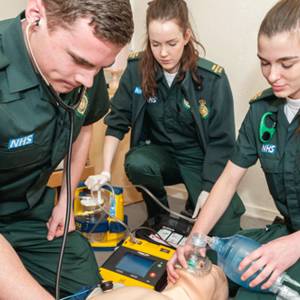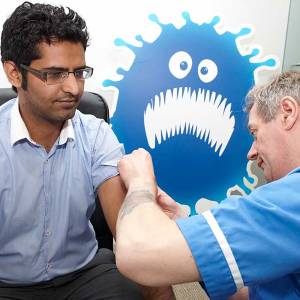'Research' news articles - Page 30
Your search returned 545 news stories:
Kingston University philosophy expert wins Leverhulme Major Research Fellowship to explore sex division in natural history
Posted Wednesday 21 November 2018

Professor of Modern European Philosophy Stella Sandford has been awarded more than £141,000 from the leading research funder to explore the philosophical basis of sex classification in natural history.
International business travel increases risk taking and puts strain on mental health, research from Kingston University and International SOS reveals
Posted Friday 9 November 2018

People who travel internationally as part of their work are more likely to engage in risky behaviour while away from home, according to a new study by Kingston University and International SOS Foundation.
Kingston University and St George's, University of London awarded grant to study how ambulance crews can better diagnose heart attacks
Posted Tuesday 6 November 2018

Kingston University and St George's, University of London are leading a study to establish the best way to diagnose people suspected of having a heart attack after being awarded a £196,500 grant by the British Heart Foundation.
Encouraging more health workers to have flu jab needs new approach that connects on an emotional level, Kingston University research finds
Posted Tuesday 6 November 2018

Persuading more health workers to have the flu jab to protect themselves and their patients cannot be done through facts and statistics alone, new research by a leading behavioural scientist from Kingston University has revealed.
Chancellor's Budget confirms mental health is high on Government's agenda and receiving long overdue recognition, Kingston University and St George's, University of London expert says
Posted Friday 2 November 2018

Kingston University and St Georges, University of London mental health expert Professor Mary Chambers evaluates the announcement of a number of new initiatives to help people with mental health problems in this year's Budget.
Kingston University experts share top tips for Halloween horror with five fearsome Gothic novels, films and KPOP music videos
Posted Tuesday 30 October 2018

Hankering after Halloween horror? Fear not, Kingston University film, literature and media experts Dr Simon Brown, Professor Fred Botting and Dr Colette Balmain have shared a selection of their top fives to put the frighteners on.
Kingston University and St George's, University of London academic awarded Honorary Fellowship from College of Paramedics
Posted Tuesday 23 October 2018

Professor of Cardiovascular Nursing Tom Quinn has been awarded an Honorary Fellowship from the College of Paramedics in recognition of his achievements and outstanding contribution to improving and advancing paramedic practice and, in turn, improving both patient care and population health.
Pets help retired owners fall asleep more easily and feel better about their neighbourhood, Kingston and St George's research reveals
Posted Tuesday 9 October 2018

Health and wellbeing expert Gill Mein and statistician Robert Grant from the department of rehabilitation sciences found older people who own pets fall asleep more easily and feel consistently more positive about their local environment than those who don't have animals.
